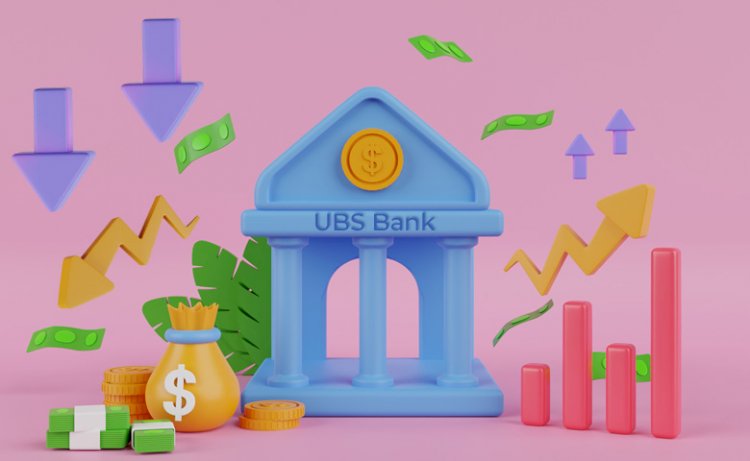Scandalous Activities at UBS Bank and Resultant Losses

One of the biggest banks in Switzerland, UBS, has been involved in a number of scandals over the years. Financial losses and poor management have resulted in billions of dollars in losses and damages. The bank, which was established in 1862 and has operations in more than 50 nations, has been involved in a variety of controversies, including unlicensed trading, market manipulation, tax evasion, and money laundering. Not only have these scandals damaged UBS's reputation, but they have also shrunk investor confidence, resulted in significant financial losses for the bank, and resulted in fines. We will examine some of the most significant scandals that have affected UBS recently, as well as how they affected the bank and its stakeholders, in this article.
The Scandal of Unauthorized Trading.
The 2011 unauthorized trading scandal, which affected UBS, was one of the biggest scandals to occur there. A director of the bank's Global Synthetic Equities Trading team in London named Kweku Adoboli caused the bank to lose more than US$2 billion as a result of illegal trading. Since Adoboli had been masking his trades for a number of years, UBS' risk management systems were unable to catch him. Oswald Grübel, the CEO of UBS, resigned in the wake of the scandal, which also caused the bank to suffer sizable financial losses. In 2012, Adoboli received a seven-year prison term for fraud, and the scandal caused investors to lose faith in UBS. In order to stop similar incidents from happening in the future, the bank has since implemented stricter risk management controls.
Banking secrecy scandal and tax evasion.
Tax evasion and banking secrecy scandal is another significant scandal that has plagued UBS. The US Department of Justice levied a $780 million fine against UBS in 2009 for encouraging US citizens to evade taxes. Additionally, the bank was required to reveal the names of thousands of its customers who were thought to be evading taxes. The integrity and reputation of the bank were compromised as a result of this scandal.
German authorities fined UBS $300 million in 2014 for encouraging tax evasion, and French authorities ordered it to pay $1.22 billion in fines and restitution in 2015 for encouraging French clients to avoid paying taxes. A French court fined UBS €3.7 billion in 2019 for assisting French clients to conceal billions of euros from French tax authorities between 2004 and 2012.
In addition to costing the bank money, these scandals have hurt UBS's standing as a reliable financial institution. UBS has been compelled by them to modify its banking procedures and to adopt more honest and moral business practices.
Scandal involving market manipulation.
For its role in the manipulation of the London Interbank Offered Rate (LIBOR), a crucial benchmark for determining interest rates on financial products, regulators in the US, the UK, and Switzerland fined UBS $1.15 billion in 2012. In order to manipulate the rates in their favor and boost profits, UBS traders submitted fictitious LIBOR rates in the scandal.
As a result of Oswald Gruebel's resignation as CEO and reputational damage to the bank, the scandal had significant repercussions for UBS. For its part in the scandal, the bank was also required to pay a sizable fine. The LIBOR scandal dealt UBS a serious blow to its reputation and played a role in investors losing faith in the bank. To stop future occurrences of the same type of incident, the bank has since put in place stronger controls and oversight.
Fraudulent Money Transfers.
2018 saw a money laundering scandal for UBS in France, where the bank was being looked into for allegedly laundering tax fraud proceeds. In 2019, a French court fined UBS €3.7 billion for assisting French clients in hiding billions of euros from French tax authorities between 2004 and 2012.
When a Swiss court found UBS guilty of money laundering and imposed a fine of CHF 30 million in 2020, the bank was forced to deal with yet another money laundering scandal in Switzerland. The scandal involved an Israeli-French businessman who was accused of embezzling funds and using UBS accounts to conceal the proceeds of his crimes.
Investor trust and confidence in UBS's capacity to manage its operations ethically and responsibly have been further damaged by these scandals. To avoid future occurrences of the same type of incident, the bank has had to spend a significant amount of money on compliance and risk management.
Additional Disputations.
UBS has faced other controversies and difficulties in recent years in addition to the significant scandals mentioned above. One such controversy involved the bank's improper handling of client funds, which caused substantial losses for some clients. For this poor management, Swiss regulators fined UBS, and the bank was required to make amends to the clients who were harmed.
Some shareholders have questioned the fairness of compensation packages for senior executives, and UBS has also come under fire for its executive compensation practices. By increasing transparency and fairness in its compensation practices, the bank has made an effort to allay these worries.
Additionally, UBS has experienced issues with cybersecurity and data breaches, raising questions about the bank's capacity to safeguard sensitive client information. To stop new breaches and safeguard the data of its customers, the bank has made significant investments in cybersecurity measures.
Last but not least, UBS has been accused of discriminating against people based on their race and gender. The bank has been charged with underpaying female employees compared to their male coworkers and failing to advance minorities and women into senior positions. UBS has taken action to address these issues after acknowledging them and has set goals for increasing the representation of women and minorities in leadership roles.
Conclusion.
Significant scandals and controversies involving UBS have occurred recently, harming the company's reputation and reducing investor confidence. These scandals cost the bank a lot of money in losses and fines. UBS must take action to resolve these problems, enhance its compliance and management procedures, and win back the trust of its investors and clients. The bank has worked to put in place stricter controls and to invest in compliance and risk management, but more must be done to avert scandals in the future and to maintain UBS' reputation as a reliable and morally upright financial institution.
References
-
The Guardian. (2011, September 15). UBS rogue trader scandal: how the $2bn loss happened. Retrieved from https://www.theguardian.com/business/2011/sep/15/ubs-rogue-trader-scandal-kweku-adoboli.
-
CNBC. (2019, February 20). French court fines UBS €3.7 billion in tax fraud case. Retrieved from https://www.cnbc.com/2019/02/20/french-court-fines-ubs-3-point-7-billion-in-tax-fraud-case.html.
-
Reuters. (2012, December 19). UBS fined $1.5 billion for rate-rigging, others to follow. Retrieved from https://www.reuters.com/article/us-ubs-libor-settlement/ubs-fined-1-5-billion-for-rate-rigging-others-to-follow-idUSBRE8BI05G20121219.
-
The New York Times. (2018, March 7). UBS Is Said to Face $1.5 Billion French Penalty in Tax Case. Retrieved from https://www.nytimes.com/2018/03/07/business/ubs-france-tax-evasion.html.
-
BBC News. (2020, January 30). UBS bank fined €4.5bn in France for tax fraud. Retrieved from https://www.bbc.com/news/business-51358721.
-
The Guardian. (2019, January 31). UBS fined €3.7bn in tax evasion case. Retrieved from https://www.theguardian.com/business/2019/jan/31/ubs-fined-37bn-tax-evasion-case.

 content-team
content-team 


















